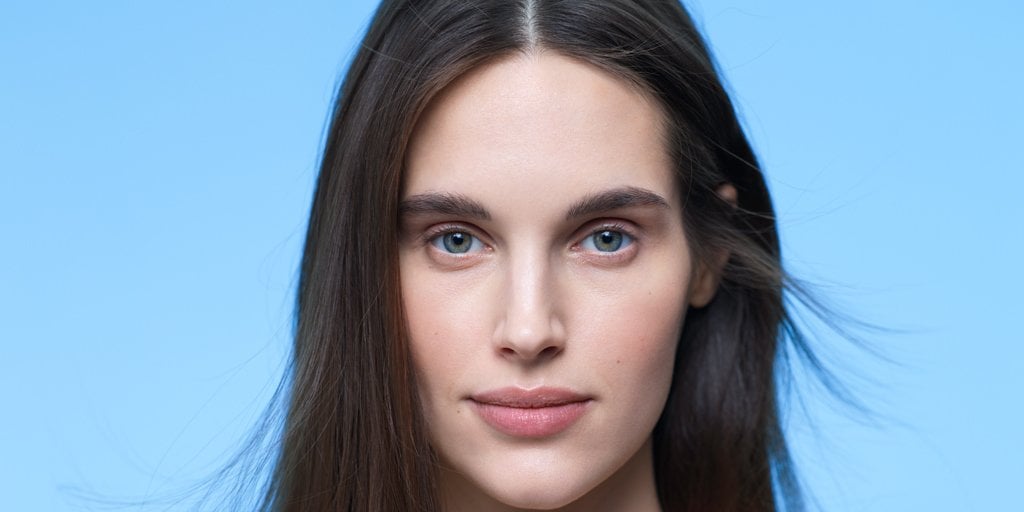ADULT ACNE,
AN EPIDEMIC
Dermatologists are seeing daily evidence that acne no longer exclusively affects teenagers. While it has traditionally been seen as an awkward teenage “right of passage” along with questionable hair colours and fashion choices, acne now affects increasing numbers of adult women, including:
- Persistent acne they've had since adolescence
- A new breakout after a long period without spots
- Acne in women who never had it as teenagers (adult-onset acne). More than 1 in 4 women experience this!
Nowadays, 51% of women aged between 20 and 29 have adult acne, with 35% of those aged from 30 to 39, 26% of those aged from 40 to 49, and 15% of those aged over 50 years suffering from the condition . Adult acne is more common in women, but men can suffer from acne too.
In other words, adult acne is on the rise and if you’re still suffering from zits well beyond your teenage years, you’re certainly not alone. But don’t worry, help is at hand. Read on to find out how adult acne works and what to do about it!
1Christin N.Collier et al. The prevalence of acne in adults aged 20 and over. J Am Acad Dermatol, Volume 58, Issue 1 – 2008?
COMMON CHARACTERISTICS
OF ADULT ACNE
Teenagers commonly suffer from inflammatory acne, whereas adults tend to be affected by retentional acne.
Inflammatory acne is accompanied by a lot of swelling and redness. It often shows up as papules (pimples that don’t contain pus), pustules (pimples that contain pus), or cysts.
The kind of acne that adult women most commonly suffer from is known as retentional acne.
Retentional acne forms when pores become clogged with oil and dead skin cells. It often shows up as whiteheads – that can turn into spots. As the plugged pore grows larger, the oil is exposed to air, and turns black. This is what is known as a blackhead. Many people believe that blackheads are caused by dirt, but that is not the case.
Whether you're suffering from pimples, whiteheads, or blackheads, the resulting effects on your skin surface – shine, dilated pores, or spots – may make you feel a lot less confident or even dent your self-esteem. It can be really tough to accept having glaring zits on your face when you are well into adult life, doing well at work, having kids, getting on the property ladder and doing all the those that grown-ups are “supposed” to do! The good news is you are in very good company (even celebs get snapped with pesky pimples) and the appropriate adult acne treatment is within your reach (click HERE to skip to adult acne treatment tips
WHAT CAUSES
ADULT ACNE?
Hormonal changes
Outbreaks of acne are often seen during times of hormonal fluctuation. These include:
- Around your period
- During and immediately after pregnancy
- After discontinuing birth control pills
- At the time of peri-menopause and menopause
In these cases, your outbreaks will usually lessen after your hormones settle down. If that doesn't happen, please see a dermatologist or your GP.
Stress
In response to stress, our bodies produce hormones called androgens. These hormones can stimulate the overproduction of sebum, which in turn can lead to acne outbreaks. Hence it is useful to practice stress reduction techniques
UV and pollution
When subjected to external stressors – such as UV light, dust, or pollution – imperfection-prone skin undergoes oxidation, triggering a chain reaction: Hyperkeratinisation (a buildup of dead skin cells), sebum hyperproduction (oily skin), and the oxidation of sebum and impurities present on the surface of the skin. This process can lead to the appearance of new blemishes.
It's a good idea to protect your skin from the sun, and to cleanse your face regularly at times of high pollution. Look for products with pollution-proof textures to stop harmful pollution particles from sticking to your skin, such as EFFACLAR Duo(+) SPF30
Family history of acne
Research studies suggest that some people may have a genetic predisposition that may make them more likely to suffer from adult acne.
Skin and hair care products
Your moisturiser, makeup, sunscreen, or hairspray can trigger outbreaks of blemishes. Look for the following terms on the labels of your products:
- Non-comedogenic
- Non-acnegenic
- Oil-free
- Won’t clog pores
Side-effects of medication and undiagnosed medical conditions
Some medications can trigger acne. If you suspect this is the case, please do not stop taking your medication, but talk to your doctor. There are many ways to control acne outbreaks
Adult acne can also be symptomatic of other underlying medical conditions (for example polycystic ovary syndrome). If your outbreaks are persistent, please consult a dermatologist or your GP.
WHAT ARE THE BEST PRODUCTS
FOR ADULT ACNE?
Skincare routine for adult acne
If you are suffering from acne in your 30s, 40s or around the menopause, specific skincare is essential. Skin affected by adult acne is often sensitive, so an effective but gentle skincare routine is in order.
- Cleanse skin twice daily with a micellar water adapted to acne-prone skin
- After cleansing, spritz skin with soothing and anti-oxidant LA ROCHE-POSAY THERMAL SPRING WATER. This will calm any inflammation.
- Use a targeted treatment cream specifically for adult acne such as EFFACLAR K+, containing reference active ingredients like LHA and salicylic acid to exfoliate skin, leaving it fresher and smoother while treating blackheads and improving the skin’s texture. The formula is enriched with Airlicium, a truly amazing molecule able to absorb up to 150 times its volume in sebum, for an 8-hour anti-shine effect.
- Some adult acne prone-skin skincare products come in tinted textures so you can conceal as you cure adult acne
- Be sure to apply non-comedogenic SPF on top of your treatment cream to stop UV and pollution acting as a tag-team to worsen inflammation and adult acne lesions. Some acne treatments already incorporate broad spectrum SPF. Ask your pharmacist about expert solutions.






